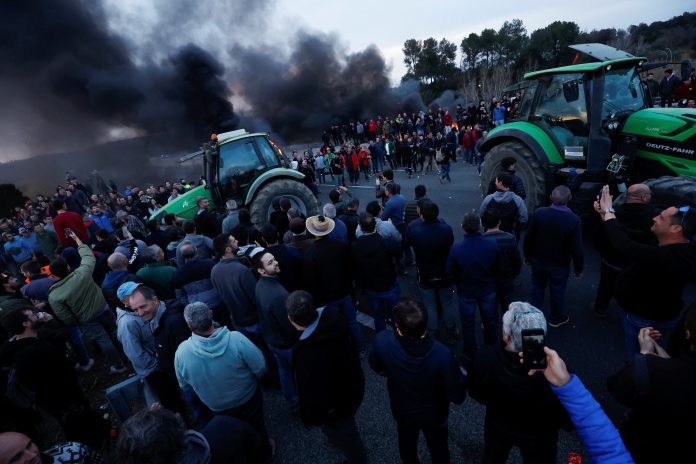What Happened:
For weeks, Europe’s farmers have been protesting climate policies that they claim have choked their ability to produce and sell livestock and produce in the European market. Recently, the European Commission President Ursula von der Leyen stated that they may scrap plans to enforce drastic cuts in pesticide use.
Farmers have taken to the streets all over Europe, blocking roadways with waste, old tires, and tractors to force their governments and EU representatives to take notice of the drastic changes that will come from the EU’s green deal that was intended to cut carbon and nitrogen emissions.
The Details:
The last few weeks have seen protestors across Europe block off roads, throw waste at buildings, light fires, and take to the streets to protest the climate policies that are choking farmers out of their livelihood. Farmers have warned politicians that the policies will threaten the EU’s ability to feed its countries if they continue down this road.
In some countries, there have been revisions made to make it easier on the farmers, but there have not been any sweeping reforms that have settled the issue. Other EU representatives are opposed to reversing course, such as Green MEP Bas Eickhout. He has proposed they find a different route instead of repealing any of the provisions.
The European Commission has claimed they are looking for another way to achieve climate goals while also avoiding damaging the agricultural sector. The Commission delayed enforcement of some of the hardline policies, such as farmers being forced to leave part of their land unused.
Multiple farmer unions have warned that the protests are likely to continue until a time when farmers feel secure again. Even with the delay in enforcement, new imports of produce and beef from foreign countries with relaxed laws are pushing the farmers to their limits. Not only can they produce less due to restrictions on pesticides and land use, but many of them cannot sell their products in Europe’s market. They also warn of the danger of becoming dependent on international trade for food.
What’s Next:
Bulgaria and Spain have already joined the protest, and Greek farmers have threatened to join in. The European Commission as well as the individual nations have expressed concern over the next steps. They are still focused on climate-friendly policies but also want to balance the needs of the farmers.
Even with the repealing of certain laws, it is going to be difficult to stop the imports from damaging the farmers ability to sell their crop. It seems that EU members are content with reevaluating their stance on that, but far less on their climate goals.
This is an ongoing situation that will likely change.


